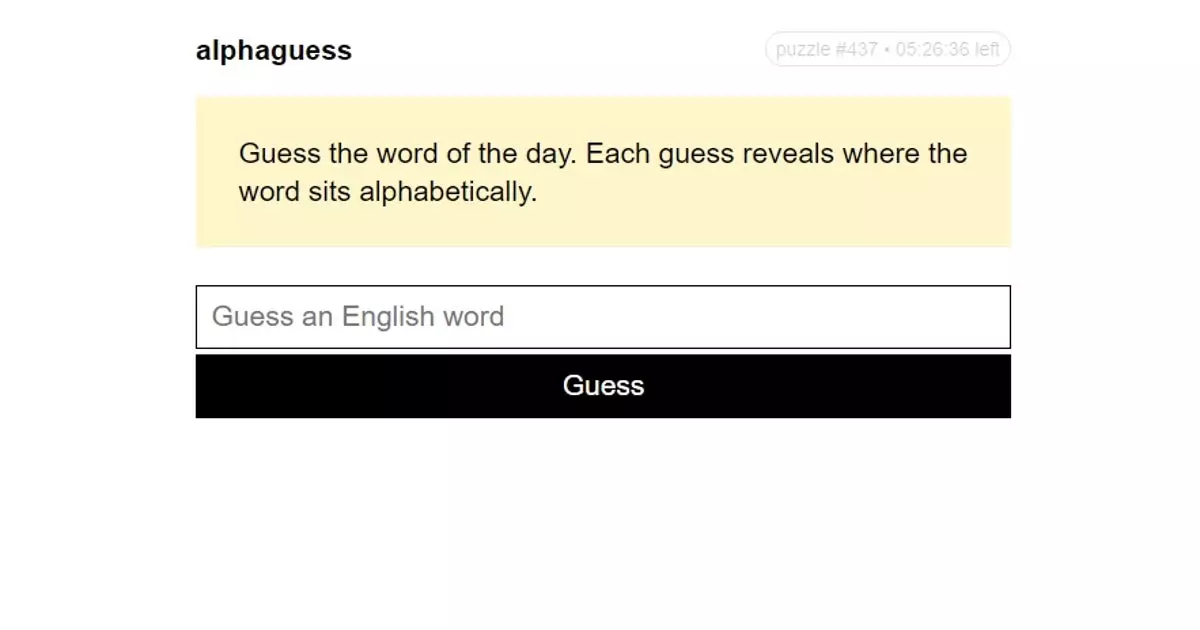In an age where productivity is often measured by output and efficiency, a curious trend has emerged: the rise of casual word games that offer a break from the relentless grind. One such game, Alphaguess, presents an intriguing challenge that cleverly disguises itself as a mere distraction. On the surface, it may seem trivial—a simple daily puzzle where players attempt to guess a secret word within a limited number of attempts. However, the underlying mechanics tap into deeper cognitive processes that many players find engaging, even addictive.
Alphaguess operates on an interesting premise. With each guess, players receive feedback on whether the target word alphabetically precedes or follows their guess. This mechanic fosters strategic thinking. The player must balance intuition with methodical guesswork, all while navigating the vast lexicon available to them. The challenge lies not just in guessing, but in the player’s ability to effectively narrow down possibilities. The initial guess should ideally split the alphabet, creating efficient pathways toward the answer. For example, a player might cleverly choose a middle-ground word to maximize the information gleaned from each attempt. Yet, even with an optimal strategy, the game can humble its players, as evidenced by one individual’s struggle to arrive at the correct answer in a disappointing 26 guesses.
What makes games like Alphaguess so captivating is their accessibility. Unlike traditional puzzles requiring lateral thinking or specialized knowledge, Alphaguess welcomes a broad audience. Its simplicity is both its charm and its curse. While the gameplay is straightforward, the settings and themes offer players a relaxed atmosphere—similar to the nostalgia of guessing games from childhood road trips. The joy of solving such puzzles lies not only in finding the answer, but in the communal experience shared when discussing tactics with friends or competing for scores. This social aspect adds another layer to the allure of Alphaguess, elevating it beyond a mere task.
Interestingly, these games challenge the very notion of productivity. Many players are increasingly aware that taking intentional breaks enhances overall efficiency. Engaging in a light-hearted activity can renew focus, foster creativity, and, paradoxically, improve productivity in the long run. Yet the irony remains that some may view such distractions as obstacles rather than tools for rejuvenation. Reflecting on this duality, one wonders if embracing distractions like Alphaguess might actually be a savvy tactic in a world rife with constant demands for output.
Ultimately, Alphaguess—alongside its counterparts—serves as a reminder that not all games need to challenge our intellect in profound ways. Sometimes the joy of play lies in the simple act of guessing, refining strategies, and sharing laughs over our collective failures and triumphs. As we continue to navigate the demands of modern life, these light-hearted puzzles provide welcome respites from the relentless quest for productivity, reaffirming the value of play in a busy world.


Leave a Reply